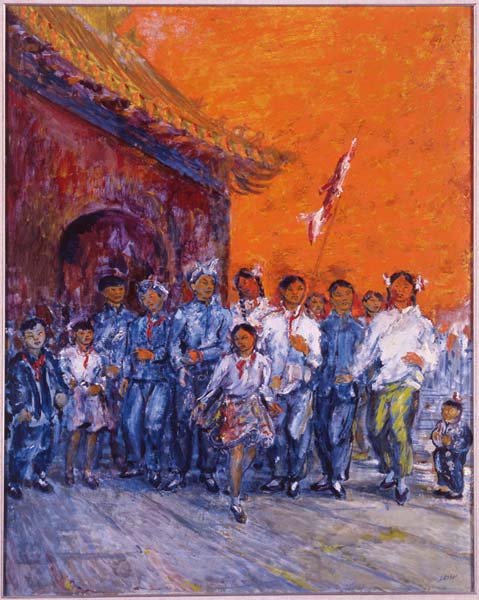
 |
|
Aligi Sassu‘s oil painting, The New China, is a relection of his first visit to the country in 1956. Photo provided to China Daily |
Soon after his return from a thought-provoking trip to China in 1956, Italian artist Aligi Sassu (1912-2000) began several large-scale oil paintings, which included The New China that he finished three years later.
In the work, Sassu depicted a group of young pioneers, one holding up a red flag, who moved forward cheerfully against the backdrop of a red-bricked ancient architecture and bright orange sky.
The painting sums up Sassu's impressions of his first visit to China, or as he wrote to his mother three days after his arrival in
For more than half a century, The New China had been kept in Sassu's residence in Milan. Now it travels back to the land where it was conceived. It is among about 140 artworks on display at The Heart of Innocence, at the Central Academy of Fine Arts' art museum. The exhibition is the largest-ever retrospective of Sassu outside Italy, chronicling his artistic exploration that spans seven decades. A representative modern artist in Italy, Sassu participated with great passion in social and cultural evolutions of the 20th century. His art bears witness to the development of impressionism, primitivism, romanticism, futurism and cubism. His works reflect turbulent, anxious and intriguing social realities, pondering such questions as liberty and equality. The exhibition features Sassu's iconic "red man" works, in which he painted naked young men who bathe in the red rays like those of a setting sun. "The red implies the warm blood, the ardor of righteousness that flows in the men's bodies. They are descendants of heroes in ancient Greece. They bravely confront with the fears inside and seek for spiritual freedom," says the artist's son Vicente Sassu Urbina.